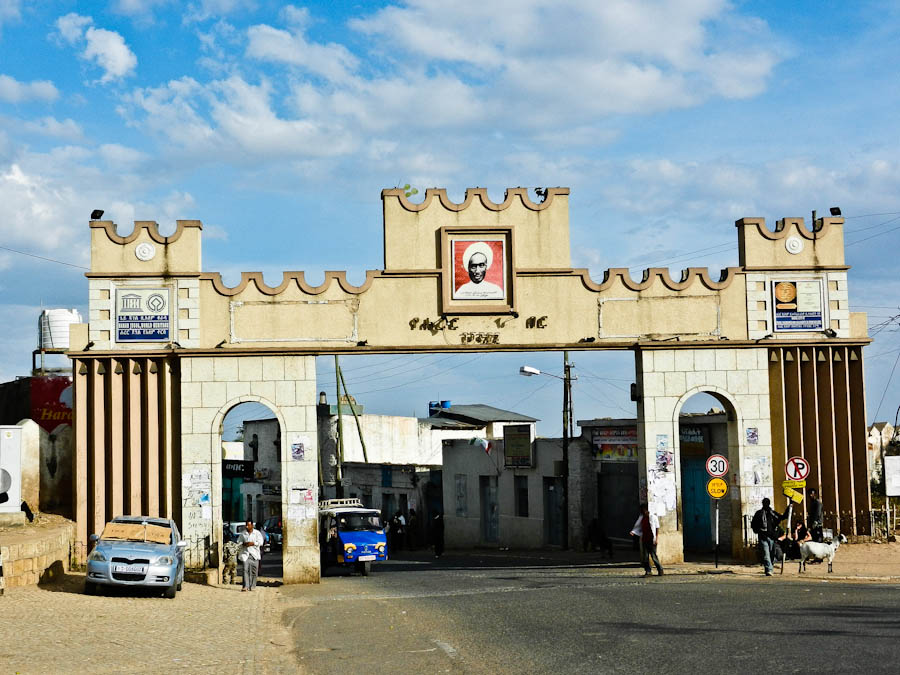Harar

Harar historical importance started in 1520 when a local amir, Abu Beker Mohamed, moved his capital there from Dakar, site of an older nearby settlement. His rule, however, was soon cut short, for he was murdered five years later by Ahmed ibn Ibrahim al Ghazi, better known as Ahmed Gragn or Ahmed the Left-Handed. The sixteenth century was the city's Golden Age. The local culture flourished, and many poets lived and wrote there. It also became known for coffee, weaving, basketry and bookbinding. The town was also renowned for its Islamic learning and scholarship.
Gragn left his homeland in 1530-1531 to begin a jehad or holy war against the Christian Ethiopian empire. He was successful in overrunning much of it but, as a result of Portuguese invention, was defeated and killed in 1543.
The city, impoverished by war, faced many difficulties. The Oromo advanced into the surrounding countryside, isolating Harar and causing Gragn's nephew and successor, Nur ibn al-Wazir Mujahid, to erect strong encircling walls which, ever since that time, have been one of the city's most dominant features.
For the next three centuries Harar remained an independent, inward-looking, and often militantly theocratic city state. The town was an important trading center, issuing its own currency.
Its many inhabitants included merchants who travelled far, particularly to Egypt, Arabia, and India. Others were engaged in agriculture and grew excellent coffee as well as the mild stimulant chat (Catha edulis).
Harar ceased to be an independent city state in 1875 when the Egyptians, then bent on establishing an East African empire, occupied it and killed its ex-ruler, Amir Abd al-Shakur.The Egyptian occupation lasted only a decade, after which another amir, Abd-ullahi, took over only to be defeated two years later by Menelik in 1887. The Battle of Chelenqo in January 1987 led to Harar's incorporation into the Emperor Menelik II of Ethiopia's growing Empire based in Shewa. Since then, Harar became an integral part of the Ethiopian empire.
Harar lost some of its commercial importance with the creation of the Addis Ababa - Djibouti Railway, initially intended to run via the city but diverted north of the mountains between Harar and the Awash River to save money. As a result of this, Dire Dawa was founded in 1902 as New Harar.
Attractions
Besides the stone wall surrounding the city, the old town is home to 110 mosques and many more shrines, centered on Feres Magala square. Notable buildings include Medhane Alem Cathedral, the house of Ras Mekonnen, the house of Arthur Rimbaud, and the sixteenth century Jami Mosque. Harrar Bira Stadium is the home stadium for the Harrar Beer Bottling Factory. The market place is also a good place to visit.
A long-standing tradition of feeding meat to spotted hyenas also evolved during the 1960s into an impressive night show for tourists. Other places of interest include Harar Brewery, established in 1984. Its beers can be sampled at the brewery social club adjacent to the brewery in Harar.

SiyaGo Online Services PLC
Head office: Addis Ababa,
Country : Ethiopia
Mobile: +251 922 348260
E-mail: contact@siyago.com

